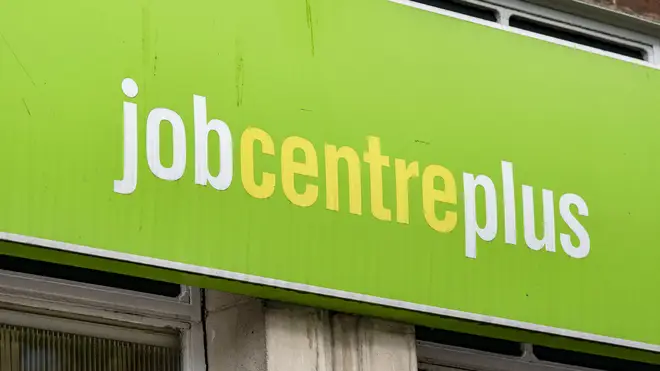
Clare Foges 6pm - 9pm
10 November 2020, 07:15 | Updated: 10 November 2020, 08:32

Sir Howard Davies gives an expert view on the latest unemployment figures
The number of jobs lost between March and October has topped 782,000, new figures have shown.
The grim figure has risen in the three months leading to September from 4.5% to 4.8%, according to figures.
In the past month alone, 33,000 people lost their jobs, pushing the unemployment rate up 0.9 percentage points on a year earlier, according to official estimates.
In the three months to September, redundancies were at a record high of 314,000, the official statisticians revealed.
It came even as payrolls increased slightly in September itself.
ONS deputy national statistician for economic statistics Jonathan Athow said: "The latest monthly tax numbers show over three-quarters of a million fewer employees on the payroll in October than in March.

"Unemployment grew sharply in the three months to September, with many of those who lost their jobs earlier in the pandemic beginning to look for work again. The number of redundancies has also reached a record high.
"Vacancies continued to recover from the very low numbers seen earlier in the year. However, these figures predate the reintroduction of restrictions in many parts of the UK."
Since the figures were taken, several parts of the country have re-entered various stages of lockdown, including severe restrictions in England, which were put in place last week.
As a result, the Government decided to extend its furlough scheme until March next year, ensuring that employees who cannot work will get up to 80% of their salaries.
Dave Innes, head of economics at the Joseph Rowntree Foundation, said: "In the face of continued uncertainty the Government was right to extend the furlough scheme until March 2021. But the eleventh-hour decision will have cost jobs and will give little comfort to those who have already been made redundant. The poorest are being hit hardest too: Low-paid workers are more likely to work in sectors where jobs are most at risk."
Suren Thiru, the head of economics at the British Chambers of Commerce, said: "While there was a rise in the number of job vacancies, this is more likely to reflect a temporary bounce as the economy reopened before recent restrictions were reintroduced, rather than a meaningful upturn in demand for labour.
"The extension to the furlough scheme will safeguard a significant number of jobs in the near term. However, with firms facing another wave of severely diminished cashflow and revenue and with gaps in Government support persisting, further substantial rises in unemployment remain likely in the coming months."
He called for more grants for businesses that have been hurt by restrictions, and asked the Government to ensure that it closes gaps in its support schemes, including for unemployed people.